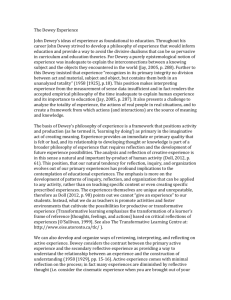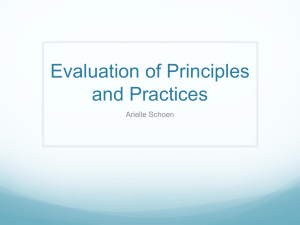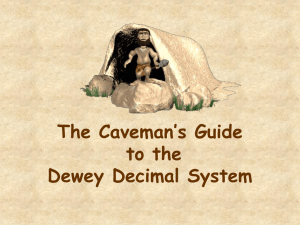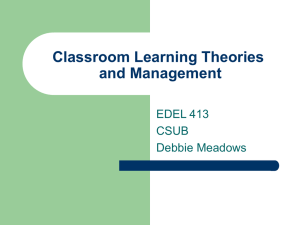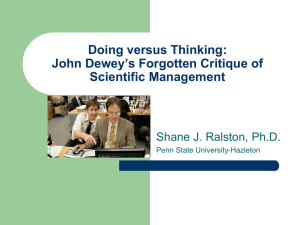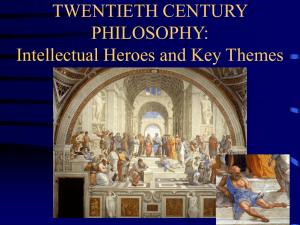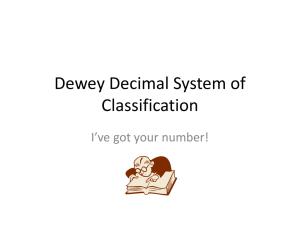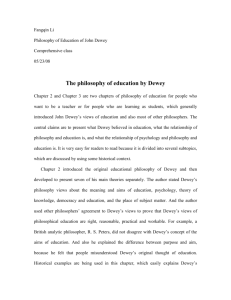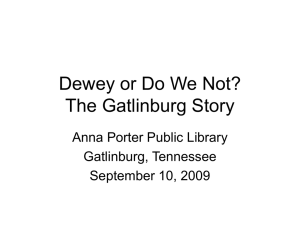What is the status of questioning in Dewey`s theory of inquiry
advertisement
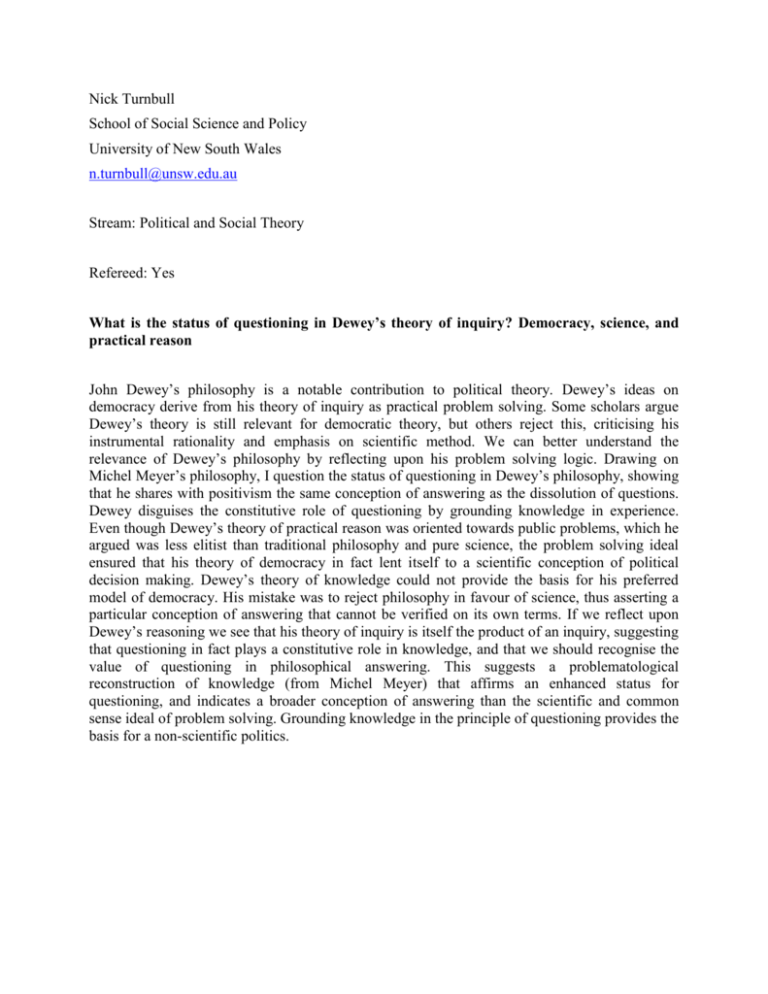
Nick Turnbull School of Social Science and Policy University of New South Wales n.turnbull@unsw.edu.au Stream: Political and Social Theory Refereed: Yes What is the status of questioning in Dewey’s theory of inquiry? Democracy, science, and practical reason John Dewey’s philosophy is a notable contribution to political theory. Dewey’s ideas on democracy derive from his theory of inquiry as practical problem solving. Some scholars argue Dewey’s theory is still relevant for democratic theory, but others reject this, criticising his instrumental rationality and emphasis on scientific method. We can better understand the relevance of Dewey’s philosophy by reflecting upon his problem solving logic. Drawing on Michel Meyer’s philosophy, I question the status of questioning in Dewey’s philosophy, showing that he shares with positivism the same conception of answering as the dissolution of questions. Dewey disguises the constitutive role of questioning by grounding knowledge in experience. Even though Dewey’s theory of practical reason was oriented towards public problems, which he argued was less elitist than traditional philosophy and pure science, the problem solving ideal ensured that his theory of democracy in fact lent itself to a scientific conception of political decision making. Dewey’s theory of knowledge could not provide the basis for his preferred model of democracy. His mistake was to reject philosophy in favour of science, thus asserting a particular conception of answering that cannot be verified on its own terms. If we reflect upon Dewey’s reasoning we see that his theory of inquiry is itself the product of an inquiry, suggesting that questioning in fact plays a constitutive role in knowledge, and that we should recognise the value of questioning in philosophical answering. This suggests a problematological reconstruction of knowledge (from Michel Meyer) that affirms an enhanced status for questioning, and indicates a broader conception of answering than the scientific and common sense ideal of problem solving. Grounding knowledge in the principle of questioning provides the basis for a non-scientific politics.

